Anarchist communism is a political philosophy and anarchist school of thought that advocates communism. It calls for the abolition of private property but retains personal property and collectively-owned items, goods, and services. It supports social ownership of property and the distribution of resources "From each according to his ability, to each according to his needs".

The Chinese Civil War was fought between the Kuomintang-led government of the Republic of China and forces of the Chinese Communist Party, armed conflict continuing intermittently from 1 August 1927 until 7 December 1949, and ending with Communist control of mainland China.

The Lincoln Battalion was the 17th battalion of the XV International Brigade, a mixed brigade of the International Brigades also known as the Abraham Lincoln Brigade. It was organized by the Communist International and named after President Abraham Lincoln who led the US during the American Civil War.

The Blue Division was a unit of volunteers from Francoist Spain operating from 1941 to 1944 within the German Army on the Eastern Front during World War II. It was officially designated the Spanish Volunteer Division by the Spanish Army and 250th Infantry Division by the Germans.

Communist Party USA, officially the Communist Party of the United States of America (CPUSA), also known as the American Communist Party, is a Marxist–Leninist communist party in the United States which was established in 1919 after a split in the Socialist Party of America following the Russian Revolution.
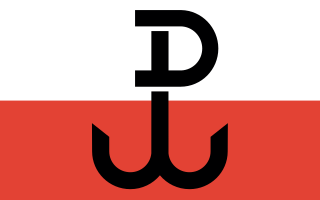
The Polish Underground State was a single political and military entity formed by the union of resistance organizations in occupied Poland that were loyal to the Government of the Republic of Poland in exile in London. The first elements of the Underground State were established in the final days of the German and Soviet invasion of Poland, in late September 1939. The Underground State was perceived by supporters as a legal continuation of the pre-war Republic of Poland that waged an armed struggle against the country's occupying powers: Nazi Germany and the Soviet Union. The Underground State encompassed not only military resistance, one of the largest in the world, but also civilian structures, such as justice, education, culture and social services.
The history of communism encompasses a wide variety of ideologies and political movements sharing the core theoretical values of common ownership of wealth, economic enterprise, and property. Most modern forms of communism are grounded at least nominally in Marxism, a theory and method conceived by Karl Marx during the 19th century. Marxism subsequently gained a widespread following across much of Europe and throughout the late 1800s its militant supporters were instrumental in a number of failed revolutions on that continent. During the same era, there was also a proliferation of communist parties which rejected armed revolution, but embraced the Marxist ideal of collective property and a classless society.
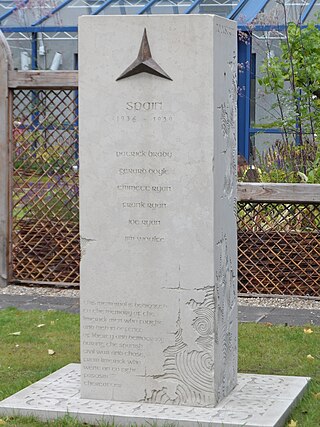
The Connolly Column was the name given to a group of Irish republican socialist volunteers who fought for the Second Spanish Republic in the International Brigades during the Spanish Civil War. They were named after James Connolly, the executed leader of the Irish Citizen Army. They were a company-strength unit of the XV International Brigade, which also included the US, British and Latin American battalions in Spain. The name is now retroactively applied to all Irish volunteers who fought for the Spanish Republic.

William Eric Aalto was an American soldier and member of Abraham Lincoln Battalion, a unit that volunteered to fight during the Spanish Civil War for the Popular Front.
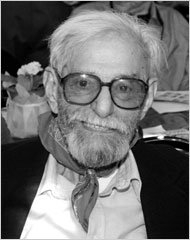
Milton Wolff was an American veteran of the Spanish Civil War, the last commander of the Lincoln Battalion of XV International Brigade, and a prominent communist.
William James Bailey was an Irish-American Communist Party labor activist who fought in the International Brigades of the Republican Army during the Spanish Civil War (1936–1939).
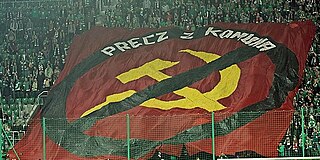
Anti-communism is political and ideological opposition to communist beliefs, groups, and individuals. Organized anti-communism developed after the 1917 October Revolution in the Russian Empire, and it reached global dimensions during the Cold War, when the United States and the Soviet Union engaged in an intense rivalry. Anti-communism has been an element of many movements and different political positions across the political spectrum, including anarchism, centrism, conservatism, fascism, liberalism, nationalism, social democracy, socialism, leftism, and libertarianism, as well as broad movements resisting communist governance. Anti-communism has also been expressed in philosophy, by several religious groups, and in literature. Some well-known proponents of anti-communism are former communists.

Irving Goff was a member of the Communist Party USA and the Abraham Lincoln Battalion, a unit that volunteered to fight during the Spanish Civil War for the Popular Front. During World War II, he was a member of the American Office of Strategic Services, and was instrumental in setting up guerrilla units working behind enemy lines in North Africa and Italy. His exploits as a guerrilla in Spain are considered to be the inspiration for Ernest Hemingway's novel For Whom the Bell Tolls.

This is not to be confused with the independent, research-based organization of Toronto, Canada, also called "Federated Press" that targets executives, lawyers, professionals.
Anti-communist mass killings are the politically motivated mass killings of communists, alleged communists, or their alleged supporters which were committed by anti-communists and political organizations or governments which opposed communism. The communist movement has faced opposition since it was founded and the opposition to it has often been organized and violent. Many anti-communist mass killing campaigns waged during the Cold War were supported and backed by the United States and its Western Bloc allies. Some U.S.-supported mass killings, including the Indonesian mass killings of 1965–66 and the killings by the Guatemalan military during the Guatemalan Civil War, are considered acts of genocide by some scholars.
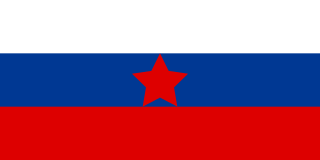
The Slovene Partisans, formally the National Liberation Army and Partisan Detachments of Slovenia, were part of Europe's most effective anti-Nazi resistance movement led by Yugoslav revolutionary communists during World War II, the Yugoslav Partisans. Since a quarter of Slovene ethnic territory and approximately 327,000 out of total population of 1.3 million Slovenes were subjected to forced Italianization since the end of the First World War, the objective of the movement was the establishment of the state of Slovenes that would include the majority of Slovenes within a socialist Yugoslav federation in the postwar period.
A communist front is a political organization identified as a front organization under the effective control of a communist party, the Communist International or other communist organizations. They attracted politicized individuals who were not party members but who often followed the party line and were called fellow travellers.

Anti-fascism is a political movement in opposition to fascist ideologies, groups and individuals. Beginning in European countries in the 1920s, it was at its most significant shortly before and during World War II, where the Axis powers were opposed by many countries forming the Allies of World War II and dozens of resistance movements worldwide. Anti-fascism has been an element of movements across the political spectrum and holding many different political positions such as anarchism, communism, pacifism, republicanism, social democracy, socialism and syndicalism as well as centrist, conservative, liberal and nationalist viewpoints.
The World Committee Against War and Fascism was an international organization sponsored by the Communist International, that was active in the struggle against Fascism in the 1930s. During this period Adolf Hitler came to power in Germany, Italy invaded Ethiopia and the Spanish Civil War broke out. Although some of the women involved were Communists whose priority was preventing attacks on the Soviet Union, many prominent pacifists with different ideologies were members or supporters of the committee. The World Committee sponsored subcommittees for Women and Students, and national committees in countries that included Spain, Britain, Mexico and Argentina. The Women's branches were particularly active and included feminist leaders such as Gabrielle Duchêne of France, Sylvia Pankhurst of Britain and Dolores Ibárruri of Spain.
Julia Ruuttila (1907–1991) was a journalist, writer, and political activist, who wrote stories, articles, and poems under many names, including her maiden name, Julia Godman.













